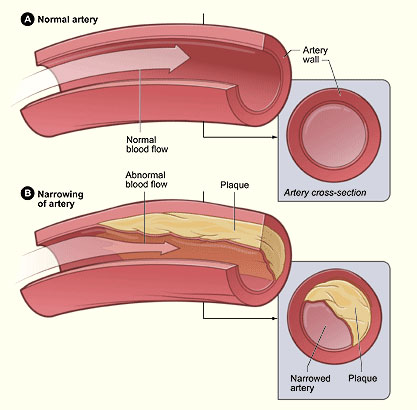


Calcium is the mineral that is most commonly found in the human body. The majority of it is stored in the bones, with some being stored in the blood. The calcium found in the blood helps with blood clotting, communication between nerve cells, and muscle contractions. Sometimes, however, calcium can build up around the heart valves or in the coronary arteries. When this happens, some serious health problems can occur.

In some cases, the calcium buildup won’t cause any issues at all. In some people, however, calcium deposits lead to stiffening leaflets of the valve, which in turn narrows your aortic valve and causes aortic valve stenosis. This is particularly common in those with congenitally abnormal valves like bicuspid aortic valves.
In cases where the valve is only narrowed mildly, you are unlikely to have symptoms. When the narrowing worsens, the left ventricle needs to work harder in order to pump blood into your aorta. Your ventricle wall becomes thickened and you are likely to develop symptoms like the following:
In cases of severe narrowing, the left ventricle may fail to function correctly, leading to heart failure. That will lead to fluid buildup within the various body tissues, tiredness, and shortness of breath.
The buildup is usually related to aging. It is most common in women over 75 and men over 65. It also tends to happen more earlier for those with abnormal valves. In some rare cases, it can happen earlier if you have received a chest radiation.
The preferred method of checking for calcium buildup is via a coronary calcium scan. It employs special X-ray tests to check for calcium buildup on your coronary arteries. The scan helps diagnose early stages of heart disease and lets your doctor tell how severe your condition is. The result is shown with a score number.
| Cardiac Calcium Score |
Plaque |
Risk of Coronary Artery Disease |
|
0 |
No plaque identified |
Very low (less than 5 percent) |
|
1 – 10 |
Mild identifiable plaque |
Low (less than 10 percent) |
|
11 – 100 |
Mild atherosclerotic plaque |
Minimal or mild coronary narrowings are likely. |
|
101 – 400 |
Moderate atherosclerotic plaque |
Mild coronary artery disease is highly likely and significant narrowings are possible. |
|
Over 400 |
Extensive atherosclerotic plaque |
More than one significant coronary narrowings |
To find out if you have dangerous calcium buildup in heart, you should know whether you are at risk. Doctors typically suggest that you have the scan done if you have any of the following risk factors:
The condition is preventable with exercise and dietary change.
You are less likely to have calcification if your aortic arteries remain clean and flexible. Exercise is the best way to reach this goal and the American Heart Association suggests getting 150 minutes’ worth of moderate exercise weekly. Some good examples of this are playing sports, dancing, swimming, biking, running, jogging, and walking. Ask your doctor about the level of exercise that is safe for you to do. Some patients will need to avoid more intense activities due to health risks.
You can also reduce your risk of both calcium buildup and arteriosclerosis by eating nutritious foods and following a generally healthy diet.
When the calcium deposit develops and it leads to narrowing, the following treatment can be helpful.